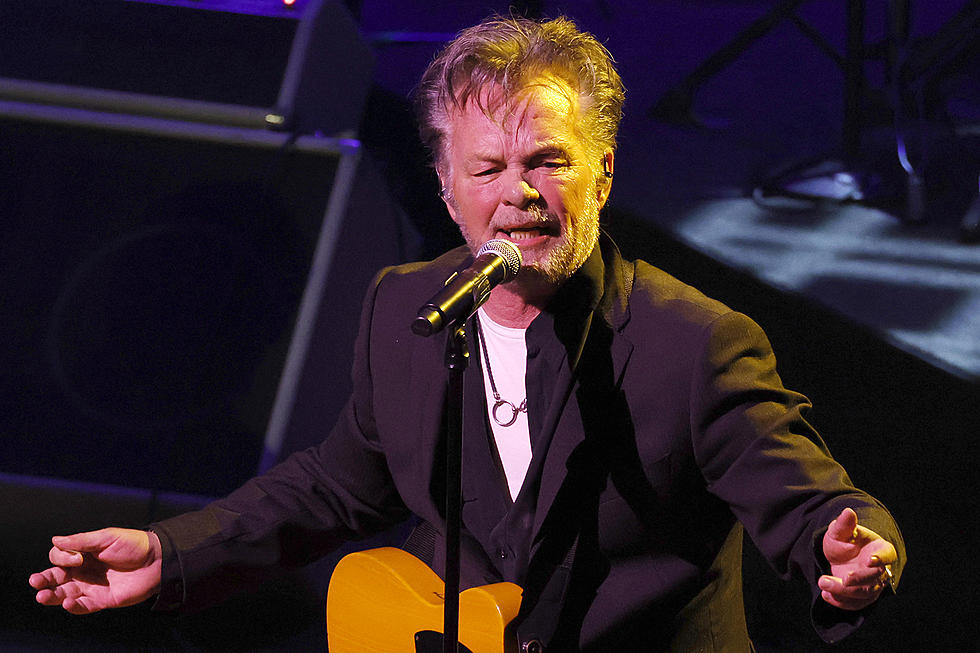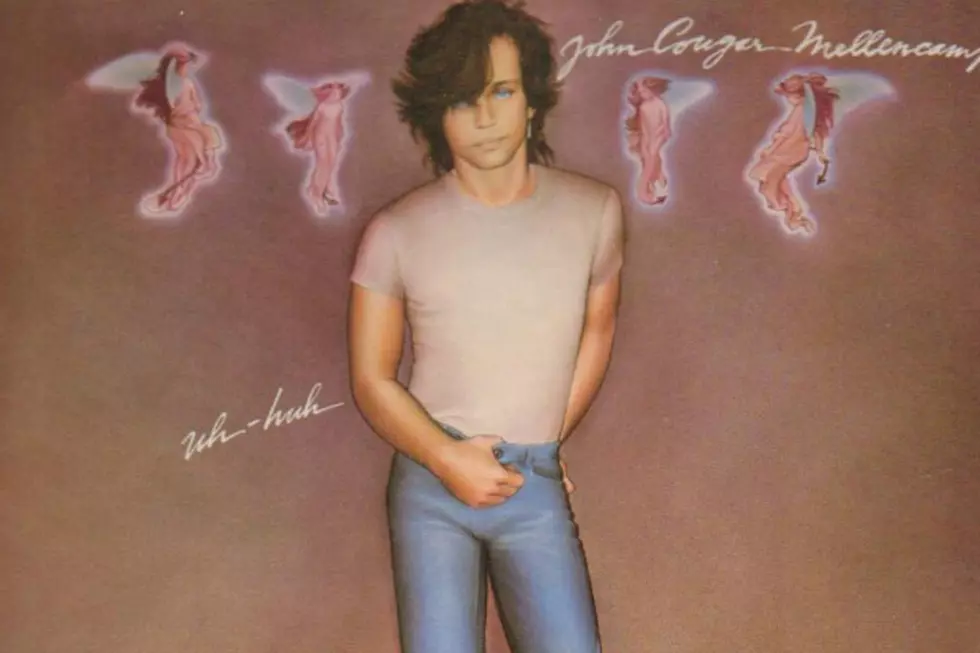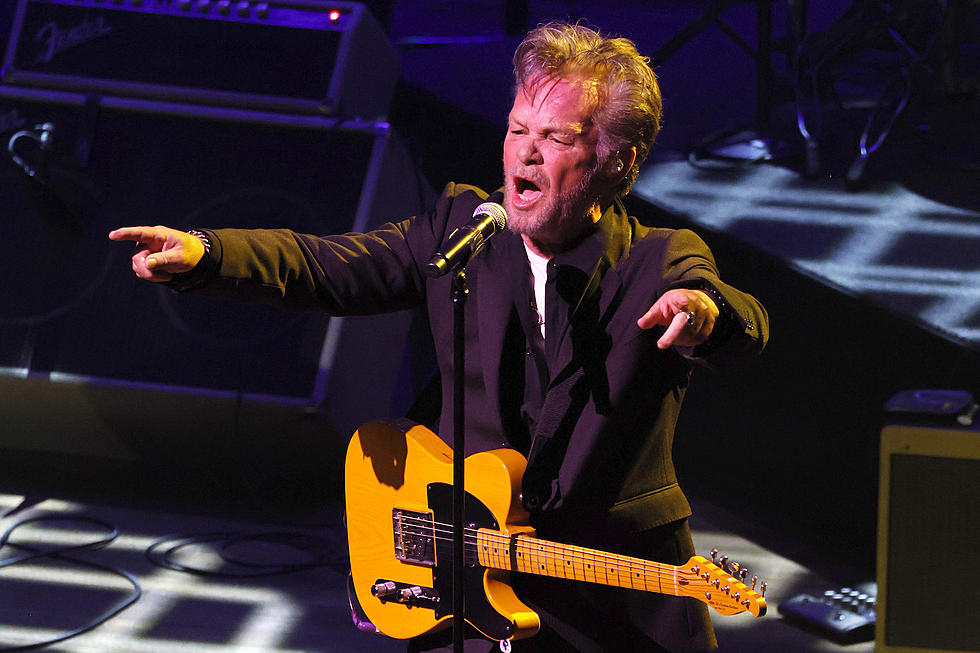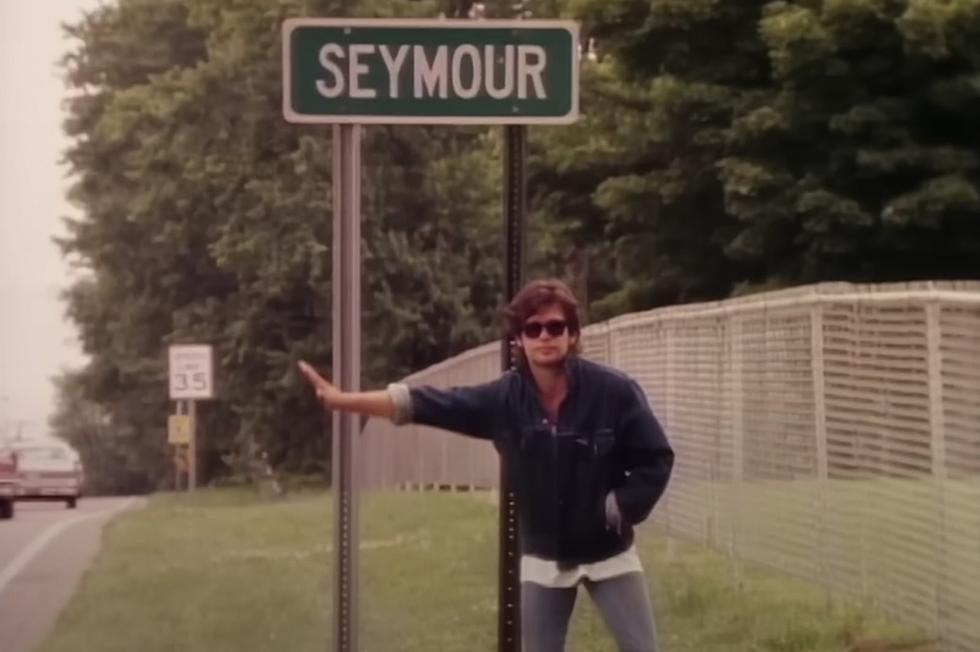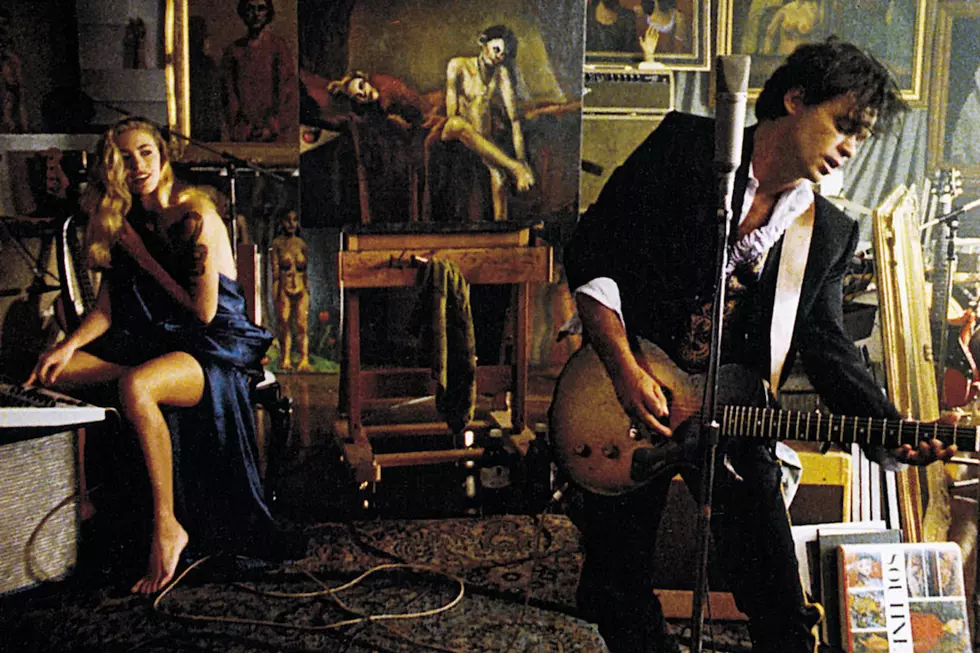
Why John Mellencamp Got Frisky on ‘Whenever We Wanted’
Ironically, just as John Mellencamp was finally shedding the "Cougar" moniker he'd been saddled with early on as a duck-tailed rocker, he took a turn back toward feel-good music. In fact, he's described Whenever We Wanted – a platinum-selling Top 20 album released on Oct. 8, 1991 – as an attempt to write "American Fool with better lyrics."
This project followed an era of music dominated by darker themes focusing on a heartland in peril, presented amid bucolic musical accompaniment from violins, dulcimers and accordions. Not everyone had followed him down this more serious path, however, as Mellencamp learned during a happenstance meeting with a fan on a South Carolina beach.
"He said, 'I loved your last two records, but there wasn't one thing about sex on either one of them,'" Mellencamp recalled in David Masciotra's Mellencamp: American Troubadour. "I realized he was right, and I didn't really like that."
Mellencamp decided to apply the cinematic detail of albums like 1987's The Lonesome Jubilee to something more elemental.
"I felt like everybody, maybe even me, was taking me a little too seriously," he told the Detroit Free Press in 1991. "I have to remind people, 'Hey, I'm the guy who wrote 'Hurts So Good,' who put chains around girls in the video. A friend of mine, one of the guys who started MTV, said, 'You're the guy who started all that sexist stuff.' I kind of invented heavy-metal videos by accident. So many people don't view me that way anymore," he added with a sigh. "I kind of miss it."
And so Whenever We Wanted is powered along by provocative tracks like "Crazy Ones," in which Mellencamp admits being "drawn to the devil, every time we kiss." On the title song, he's helpless against a woman's powers. The No. 14 hit "Get a Leg Up," which featured a video shoot where Mellencamp met his future wife Elaine Irwin, was even more direct in its sensual focus.
Watch John Mellencamp Perform 'Now More Than Ever'
Mission accomplished. "People think that songwriting is magic, and that I have no control over what happens," he said in Mellencamp: American Troubadour. "Do you really think that after I wrote 'Rain on the Scarecrow' and 'Jackie Brown,' that I didn't realize 'Get a Leg Up' was leaning in another direction?"
This newfound lyrical vigor was matched stride for stride with the kind of direct musical approach unheard since 1983's Uh-Huh. "It's very rock 'n' roll," Mellencamp admitted in a talk with the Houston Chronicle in 1991. "I just wanted to get back to the basics."
At the same time, however, Whenever We Wanted kept a few issues of central importance to Mellencamp in the forefront. "Love and Happiness," for instance, lamented a world in which "we're droppin' our bombs in the southern hemisphere, and the people are starving that live right here." Elsewhere, he found hope in desperate times with "Now More Than Ever," a track that joined "Love and Happiness" and "Again Tonight" in the Top Five of Billboard's Album Rock Tracks chart.
A far more mature writer now, Mellencamp found that he could confidently plant one foot in each world. "The thing is, I want songs that work whether you're a good listener or not," he told the Detroit Free Press. "If you don't apply yourself – and I'm not saying that's necessary – you should still be able to like the song."
Whenever We Wanted didn't chart as high as 1989's rootsy Big Daddy. Still, it set the stage for a return to the Top 10 with 1993's Human Wheels – and, more importantly, finally helped Mellencamp achieve some needed career balance. He learned he could, in fact, have it both ways.
The Most Awesome Live Album From Every Rock Legend
Odd Couples: John Mellencamp and Mick Ronson
More From Ultimate Classic Rock

